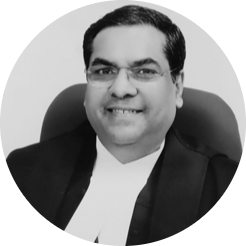Sanjiv Khanna

Sanjiv Khanna
Former Chief Justice of India
Assumed Office18th Jan, 2019
Retired On13th May, 2025
Previously
Chief Justice of IndiaNovember 11th 2024 - May 13th 2025
Sitting Judge of the Supreme CourtJanuary 18th 2019 - November 10th 2024
Permanent Judge of the Delhi High CourtFebruary 20th 2006 - January 17th 2019
Additional Judge of the Delhi High CourtJune 24th 2005 - February 19th 2006
Enrolment1983
Profile
Early Life
Justice Sanjiv Khanna was born on 14 May 1960 in a family of lawyers.
His father, Dev Raj Khanna, served as a judge on the Delhi High Court, and his uncle, Justice Hans Raj Khanna, was a Supreme Court judge renowned for his famous dissent in A.D.M. Jabalpur v. Shivkant Shukla, which held that the right to life and personal liberty cannot be suspended during an emergency.
In his early years, Justice Sanjiv Khanna’s father hoped he would become a chartered accountant. However, Justice Khanna was reportedly inspired by his uncle to pursue a career in law. He studied law at the Campus Law Centre, Delhi University, in the same batch as Justice Indu Malhotra. After graduating, he enrolled as an advocate with the Bar Council of Delhi in 1983.
Career as an Advocate
Justice Khanna practised taxation, arbitration, commercial law, environmental law, medical negligence law and company law in the Delhi High Court.
He represented the Delhi Government as an Additional Public Prosecutor in criminal law matters. He was also a Senior Standing Counsel for the Income Tax Department of Delhi for about seven years. In 2004, he was appointed as Delhi’s Standing Counsel for civil law matters at the Delhi High Court.
Career as a Judge
On 25 June 2005, he was appointed as an Additional Judge of the Delhi High Court and became a permanent judge on 20 February 2006. At the Delhi High Court, Justice Khanna was associated with the Delhi Judicial Academy, the Delhi International Arbitration Centre and the district court mediation centres.
On 18 January 2019, Justice Khanna was elevated to the Supreme Court on the recommendation of Chief Justice Ranjan Gogoi-led collegium. He was appointed by President Ramnath Kovind. In November 2024 he assumed office as India’s 51st CJI. He will retire in May 2025 after a tenure of six months.
Figure 1 indicates that Justice Khanna has authored 177 judgements and has been a part of 497 benches so far.
Figure 2 indicates that Justice Khanna mainly authored judgements in Criminal Matters (21%). Apart from that, he has authored several judgements in Taxation (13%), Civil (8%), Company (5%) and Arbitration (4.7%) matters.
Notable Judgements
In Association for Democratic Reforms v Election Commission of India (2024), a Division Bench led by Justice Khanna unanimously rejected ADR’s plea seeking 100 percent VVPAT verification of votes cast on Electronic Voting Machines. Authoring the leading opinion, Justice Khanna wrote that he wished to “put on record all safeguards adopted by the ECI to ensure free and fair elections”. While putting down the feature of the EVMs, he stated that the current system “ensures quick, error-free and mischief-free counting of votes.”
In 2024, a five-judge Bench declared the Electoral Bond Scheme unconstitutional. Justice Khanna wrote a concurring opinion stating that the right to privacy of donors does not arise if a donation is made through a banking channel. Their identity is “asymmetrically known to the person and the officers of the bank from where the Bond is purchased.” He also held that retribution, victimisation, and retaliation against donors are wrongs but they cannot be a justification for the scheme which violates voters' collective right to information.
In 2023, Justice Khanna authored a concurring opinion in a five-judge Bench decision that upheld the validity of the abrogation of Article 370. He found that Article 370 of the Constitution of India was a feature of asymmetric federalism and not and indication of sovereignty, and that its abrogation does not negate the federal structure.
In 2023, in Shilpa Sailesh v Varun Sreenivasan, Justice Khanna authored the majority opinion which held that the Supreme Court has the power to directly grant divorce under Article 142 of the Constitution. Justice Khanna reasoned that the SC can grant a divorce under the grounds of ‘irretrievable breakdown of marriage’ to grant ‘complete justice’.
In the Revising Fee Scale for Arbitrators decision of 2022, Justice Khanna wrote a dissenting opinion on the limited point that in the absence of an arbitration agreement, the arbitral tribunal is entitled to fix a reasonable fee.
Justice Khanna authored the majority opinion in the CPIO, Supreme Court v Subhash Chandra Agarwal judgement from 2019, popularly known as the RTI judgement. The 5-Judge Bench had to decide if subjecting the Office of the Chief Justice (OCJ) to RTI requests curtailed the independence of the judiciary. Justice Khanna wrote that judicial independence does not necessarily oppose the right to information. Whether or not the OCJ should fulfil RTI requests must be decided on a case-by-case basis. The judgement also concluded that the Court’s Chief Public Information Officer must decide if the disclosure is in the larger public interest by weighing it against the right to privacy of judges.
